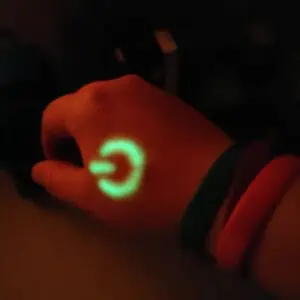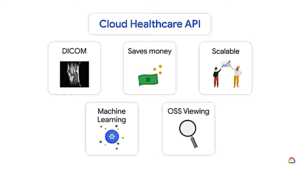Children with the respiratory syncytial virus (RSV) and bronchiolitis (a complication of RSV), caused a surge of children to take admission in emergency departments across the country.
Table of Contents
ToggleIt is a remarkably common infection in children less than 2 years old, with up to 20% of each year’s birth cohort seeking medical attention for symptoms related to respiratory syncytial virus or RSV.

Though deaths related to bronchiolitis are rare in the USA, RSV remains a significant cause of infant mortality worldwide.
Children at higher risk for severe disease include those less than 12 weeks old at the time of infection, those who were born before 29 weeks gestation, and those with chronic pulmonary, neurologic, or hemodynamically significant cardiac disease.
Potentially modifiable environmental factors such as exposure to secondhand smoke may also contribute to more severe disease.
But fortunately, many of these young patients can safely recover at home and avoid hospitalization.
Bronchiolitis is very common among children and infants in the months of winter. This is caused by the inflammation of the small airways in the lung by the RSV as well as rhinovirus, adenovirus, parainfluenza virus, and human metapneumovirus.
Physicians Leah Tzimenatos and Nate Kuppermann of UC Davis pediatric emergency medicine recommended to the parents when they will take the child to the emergency room – and when might not need to.
What are the symptoms of complication of RSV (bronchiolitis)?
Initially, bronchiolitis begins as a cold with a stuffy or runny nose and cough. In infants and young children, the symptoms may also include;
- Breathing fast
- Breathing hard
- A whistling sound (wheeze) when breathing
- Fever (temperature greater than 100.4°F)
- Irritability or fussiness
- Not eating well
Bronchiolitis is usually mild and goes away on its own in the case of healthy children and infants.
For all children having symptoms of bronchiolitis, there is no requirement to visit the emergency department or hospital and most of them can be cared for at home.
You may also read: Beware of Newly Discovered Vaccine-resistant Coronavirus of Russian Bats!
When should children be visiting the emergency department or hospital?
If the children have the following symptoms of complication of RSV, they are recommended to be seen in the emergency department or medical;
- Fast breathing (for infants younger than six months, this may be 60 to 80 times per minute) or difficult breathing that is not improving after suctioning the nose
- Pale or blue-tinged skin, lips, or nails
- Severe coughing episodes
- Severe sucking in at the base of the throat or seeing the outline of ribs during breathing (retractions), flaring nostrils, grunting noise with each breath
- Pauses in breathing more than a few seconds
When should you contact your pediatrician or primary care physician?
Children having any of the following symptoms are recommended to contact a medical provider;
- Fast breathing: in the case of infants younger than six months, this may be 60 to 80 times per minute or difficulty in breathing which is not improving after suctioning the nose.
- Pale or blue-tinged skin, lips, or nails
- Severe coughing episodes
- Severe sucking in at the base of the throat or seeing the outline of ribs during breathing (retractions), flaring nostrils, grunting noise with each breath
- Pauses in breathing more than a few seconds
How should parents care for a child with bronchiolitis (complication of RSV) at home?
- Unfortunately, viral illnesses cannot be treated with antibiotics and there are no medications to cure bronchiolitis.
- Treat your child with supportive care and encourage them to drink plenty of fluids.
- Suction your child’s nose if needed, with a bulb syringe or nasal aspirator (such as a NoseFrida), before they eat or sleep or when they seem to be breathing hard.
- Using saline drops in the nose with suctioning can help to remove mucous.
- Encourage your child to drink by offering small, frequent feedings
- Give acetaminophen, as directed, or ibuprofen (if older than six months of age) as needed for fever.
- Do not smoke around your child because secondhand smoke can increase the severity of bronchiolitis.
- Make a follow-up appointment with your child’s doctor.
How long will the symptoms last?
- Bronchiolitis often lasts longer than a usual cold.
- It is normal for the fever to continue and for stuffy nose and cough to last one week, and sometimes longer.
- Sleeping and eating routines may not return to normal for one week.
You may also read: Good News – Newly discovered COVID-19 antibody neutralize its all variants
If there are no medications for bronchiolitis, how is it treated in the hospital?
- Hospital care supports the child until their symptoms improve to a level that is safe to care for your child at home.
- Suctioning of the nose with a bulb suction or wall suction with saline drops to rinse and open the child’s nasal airway passages.
- Hydration with tube feedings or intravenous (IV) fluids, if the child is dehydrated and not able to drink sufficiently.
- Additional oxygen may be given if needed to maintain blood oxygen to safe levels.
- Breathing treatments with inhalers or nebulizers usually do not help children with bronchiolitis, but might be tried in the hospital.
- If the child is using their chest muscles to breathe for long periods of time (with the outline of their ribs showing), additional breathing support can be provided through the nose or a mask.
- Rarely, a breathing tube is needed to support breathing.
You May Also Read: Purple Tomatoes! A journey from Molecular Lab to Modular Kitchen
Public Release: This material from the originating organization/author(s) may be of a point-in-time nature, edited for clarity, style, and length. The views and opinions expressed are those of the author(s).View in full here
Here we have put a video available on YouTube by OPENPediatrics, kind watch it for more details about RSV;















